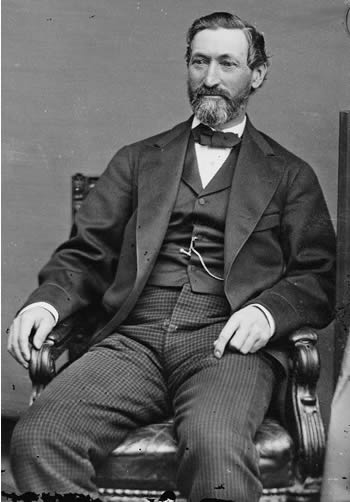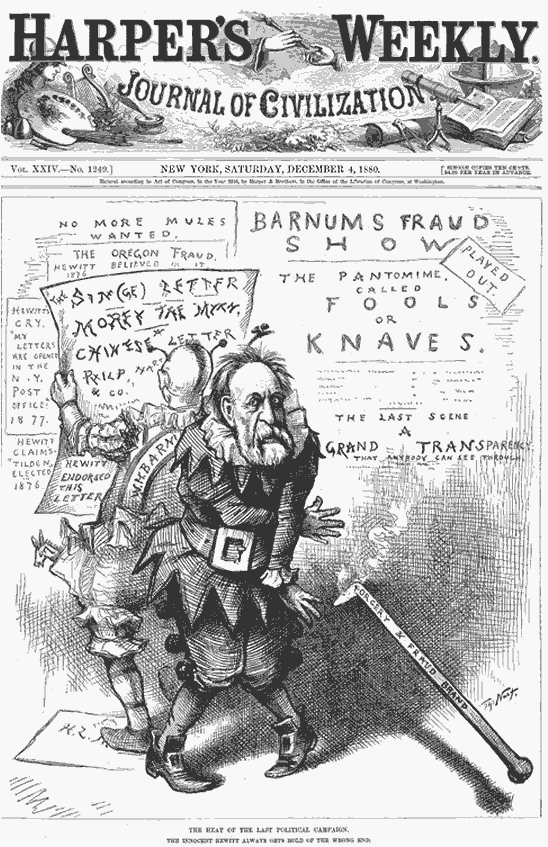Quotations | Newspaper
Articles | Special Features | Links | Search
SPECIAL FEATURE
by Barbara Schmidt
MARK TWAIN TAKES A SWIPE AT "SEVEN MULE" BARNUM
A Recovered Speech and Poem
Middlesex Club, Boston, November 6, 1880
With special thanks to Leslie Myrick of the Mark Twain Project at Berkeley for recovering the text of "Abou Bill Barnum" from historical newspaper archives.
In the presidential election of 1880, Mark Twain supported the Republican ticket of James A. Garfield over that of Winfield S. Hancock. A few days prior to the election, a letter that was later deemed to be a forgery was circulated across the country. The letter was a forgery of Garfield's handwriting and signature and indicated that he was sympathetic and in support of Chinese immigration -- a stance sure to inflame voters against him. It was published at a date so late as almost to preclude efficient exposure of the forgery. William H. Barnum was chairman of the Democratic National Committee and accused of helping to spread the forgery across the country even though he had knowledge that it was likely a false document. The Republican party was able to counter the accusations contained in the letter in a last ditch effort and pulled out the election for Garfield in one of the closest elections in the country's history.
| William Henry Barnum (1818-1889), a cousin to showman P. T. Barnum, served as both a representative and senator to Washington from the state of Connecticut. He had previously earned a nickname among Republicans as "Seven Mule" Barnum because it was reported he had used those code words in a dispatch requesting "seven thousand dollars." He was chairman of the Democratic National Committee in 1880. |
 Photo from Library of Congress Prints and Photographs Division. |
On November 2 Mark Twain gave a speech in Hartford celebrating Republican victories and referred to the "Forgery, A Farce" in a speech dubbed by the press as a funeral oration for the Democratic party. On November 6, 1880 Mark Twain traveled to Boston to the Middlesex Club to again celebrate the Republican victory. The Middlesex Club continues to be one of the oldest organizations of Republicans in the United States dedicated to preserving the memory and ideals of Abraham Lincoln. Accompanying Twain on the trip was Marshall Jewell, a former governor of Connecticut and chairman of the Republican National Committee. Also present at the occasion were Governor John Davis Long of Massachusetts, Alanson Wilder Beard, newly elected congressman Ambrose Arnold Ranney of Massachusetts, Governor Nathaniel "Natt" Head of New Hampshire, and Col. Daniel Needham. Tom Karl, manager of the opera company "Bostonians" sang. Newspapers across the country reported on Mark Twain's speech and his parody of the poem written by James Leigh Hunt in the 1830s titled "Abou Ben Adhem." Newspapers around the country carried segments of Mark Twain's speech and his poem. To date, (St. John's) The Newfoundlander, 26 November 1880, p. 1 seems to be the most complete version yet available and is the text reprinted here.


